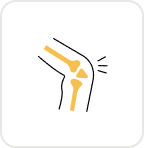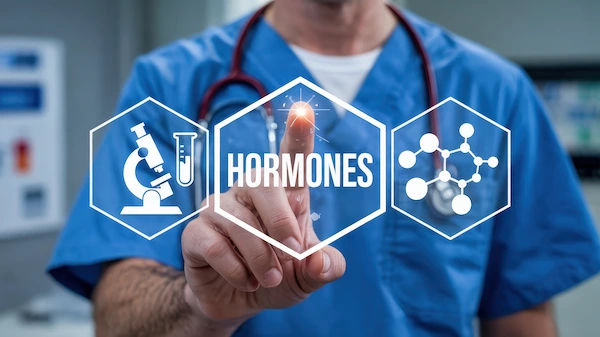7 Blood Tests Every Woman Should Do After 35
Discover the 7 essential blood tests every woman over 35 should take to monitor hormones, bone health, thyroid, and more. Early checks = long-term wellness.

Written by Dr. Shaik Abdul Kalam
Reviewed by Dr. Rohinipriyanka Pondugula MBBS
Last updated on 9th Sep, 2025

As women step into their mid-thirties and beyond, their bodies begin to change in subtle yet significant ways. Hormonal shifts, lifestyle factors, and the natural ageing process can bring new health considerations. While you might feel perfectly fine, this is a crucial time to become more proactive about your health.
Why Age 35+ Matters for Women's Health
Between the ages of 35 and 45, many women go through changes in their bodies. This isn’t full menopause yet, but hormones, especially oestrogen, may start to rise and fall in new ways. These shifts can affect your mood, energy levels, weight, bones, and how your body uses food.
At the same time, many women in this age group are managing work, family, and social life all at once. This busy lifestyle can lead to more stress, less time for exercise, and not always eating the healthiest food. When these habits combine with your genes, they can raise the chances of certain health issues such as:
- Hormonal imbalances
- Slower metabolism or weight gain
- Weakening bones
- Vitamin and mineral deficiencies
Getting some key blood tests during this stage can help you and your doctor understand what your body needs. It allows you to make early changes, whether in your diet, daily habits, or medical care, to stay healthy and feel your best.
7 Essential Blood Tests for Women After 35
Here are seven key blood tests that can provide valuable insights into your health as you age:
1. Complete Blood Count (CBC)
The Complete Blood Count, or CBC, is a basic but very informative blood test. It gives your doctor a snapshot of your overall health and can help find a wide range of problems, including infections and anaemia.
Why it matters: Anaemia (low red blood cells) is common in women, especially due to menstrual blood loss or nutritional deficiencies. Symptoms like tiredness, weakness, and dizziness can often be mistaken for just being busy or stressed. A CBC can quickly identify if anaemia is the cause. It also checks your white blood cells, which are your body's infection fighters, and platelets, which help blood clot.
What it Means:
- Low Haemoglobin/RBCs: Might mean anaemia, which can cause fatigue and weakness.
- High or Low WBCs: Could point to an infection or a problem with your immune system.
- Abnormal Platelets: Can indicate bleeding or clotting issues.
2. Thyroid Profile
Your thyroid is a small gland in your neck that produces hormones controlling your body's metabolism, energy levels, weight, and even your mood. Thyroid problems are very common in women, especially after 35.
Why it matters: An underactive thyroid (hypothyroidism) can cause tiredness, weight gain, feeling cold, hair loss, and mood changes. An overactive thyroid (hyperthyroidism) can lead to weight loss, anxiety, a fast heart rate, and trouble sleeping. These symptoms can easily be confused with stress or ageing, making a thyroid check essential.
What it Means: Abnormal TSH, T3, or T4 levels indicate a thyroid problem. Getting a diagnosis means you can start treatment, which often involves simple medication, to get your energy and well-being back on track.
3. Blood Sugar Tests
The risk of developing type 2 diabetes increases with age, especially if you have a family history, are overweight, or have an inactive lifestyle. High blood sugar can silently damage your organs over time, leading to serious complications if not managed.
Why it matters: Diabetes can affect your energy, vision, nerve health, and wound healing. Catching high blood sugar early (even at the prediabetes stage) allows you to make lifestyle changes to prevent or delay full-blown diabetes.
What it Means: High blood sugar levels in these tests indicate impaired sugar control. Early detection means you can take steps to manage your blood sugar, often through diet and exercise, and potentially avoid diabetes or its complications.
4. Lipid Profile
A Lipid Profile measures the different types of fats (lipids) in your blood, including cholesterol and triglycerides. High cholesterol is a major risk factor for heart disease, which remains a leading health concern for women.
Why it matters: High levels of "bad" cholesterol (LDL) can lead to plaque buildup in your arteries, narrowing them and increasing your risk of heart attacks and strokes. Women's cholesterol levels can also change around perimenopause, making monitoring important.
What it Means: Your doctor will look at the balance of these fats. High LDL or triglycerides mean you have a higher risk of heart disease, and managing these levels through diet, exercise, or medication is crucial.
5. Vitamin D and Vitamin B12 Levels
These two vitamins are vital for many bodily functions, and deficiencies are surprisingly common, especially as we age.
Why they matter:
- Vitamin D: Crucial for bone health (helping your body absorb calcium), immune function, and mood. Low levels are linked to bone weakening (osteoporosis), muscle pain, and fatigue.
- Vitamin B12: Essential for nerve health, red blood cell production, and energy. Low levels can cause tiredness, weakness, numbness or tingling in hands and feet, and memory issues.
What it Means: If your levels are low, your doctor might recommend supplements or dietary changes to bring them back to a healthy range, which can significantly improve your energy, bone strength, and nerve function.
Book Vitamin D and Vitamin B12 now
6. Hormone Profile
Hormones play a huge role in women's health. After 35, imbalances can become more noticeable or new issues like Polycystic Ovary Syndrome (PCOS) might be diagnosed, or existing symptoms might worsen.
Why it matters: Hormonal imbalances can cause irregular periods, unexplained weight changes, acne, hair growth on the face/body, hair thinning on the scalp, and fertility challenges. PCOS, a common hormonal disorder, can also increase the risk of diabetes and heart disease. Checking certain hormone levels helps identify these imbalances.
What it Means: Abnormal levels can help diagnose PCOS or other hormonal imbalances, allowing for targeted treatment to manage symptoms and reduce long-term health risks.
7. Bone Health Markers (Calcium, Phosphorus, Alkaline Phosphatase)
While osteoporosis (weak bones) is often associated with older age, the foundations for strong bones are built and maintained throughout life. After 35, it's good to start monitoring markers related to bone health, especially as hormonal changes can begin to affect bone density.
Why it matters: Your bones are constantly being rebuilt. Calcium and phosphorus are key minerals for bone strength, and alkaline phosphatase (ALP) is an enzyme involved in bone formation. Imbalances can indicate issues with bone metabolism or nutrient absorption, which might lead to weaker bones later.
What it Means: Abnormal levels can suggest problems with calcium absorption, bone metabolism, or other health issues. Early detection allows for dietary adjustments, supplementation (like Vitamin D, which aids calcium absorption), or other interventions to protect your bone health.
Get These Tests To Get A Yourself Checked up
Who Should Get These Tests?
Every woman aged 35-45 should consider these blood tests as part of their routine health check-up. They are especially important if you:
- Have a family history of diabetes, thyroid problems, heart disease, or osteoporosis.
- Are experiencing new or worsening symptoms like unexplained tiredness, weight changes, irregular periods, or mood swings.
- Have lifestyle factors such as a less active routine, stress, or dietary restrictions.
- Are you planning a pregnancy or experiencing fertility concerns?
- Have been diagnosed with conditions like PCOS.
Discussing these tests with your doctor will help create a personalised health plan that suits your needs.
Why Choose Apollo 24|7 for Your Tests?
When you need health tests, you want a service that is reliable, accurate, and easy to use. Apollo 24|7 offers all of this and more. They make it simple to get tested with home sample collection for many blood tests, which is very helpful for busy women. As part of the trusted Apollo Hospitals group, they ensure high-quality, accurate results using advanced lab equipment. They provide a wide range of tests and comprehensive health packages, including those focused on women's health, helping you get a complete picture of your well-being. You can expect quick reports, often within hours, allowing for faster discussions with your doctor and quicker treatment if needed. Their expert team processes and interprets your results, and their easy-to-use website and mobile app make booking tests and accessing your reports simple and hassle-free.
Conclusion
Turning 35 is a great time for women to take a more proactive approach to their health. By including these seven essential blood tests in your regular health routine – covering everything from your general blood health and sugar levels to your thyroid, hormones, and bone strength – you can gain valuable insights into your body's needs. Early detection of any imbalances or potential issues means you can take steps to manage them, often with simple lifestyle changes or medication. Prioritising these tests is a vital step towards maintaining your health, energy, and quality of life for years to come.







